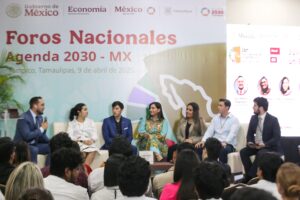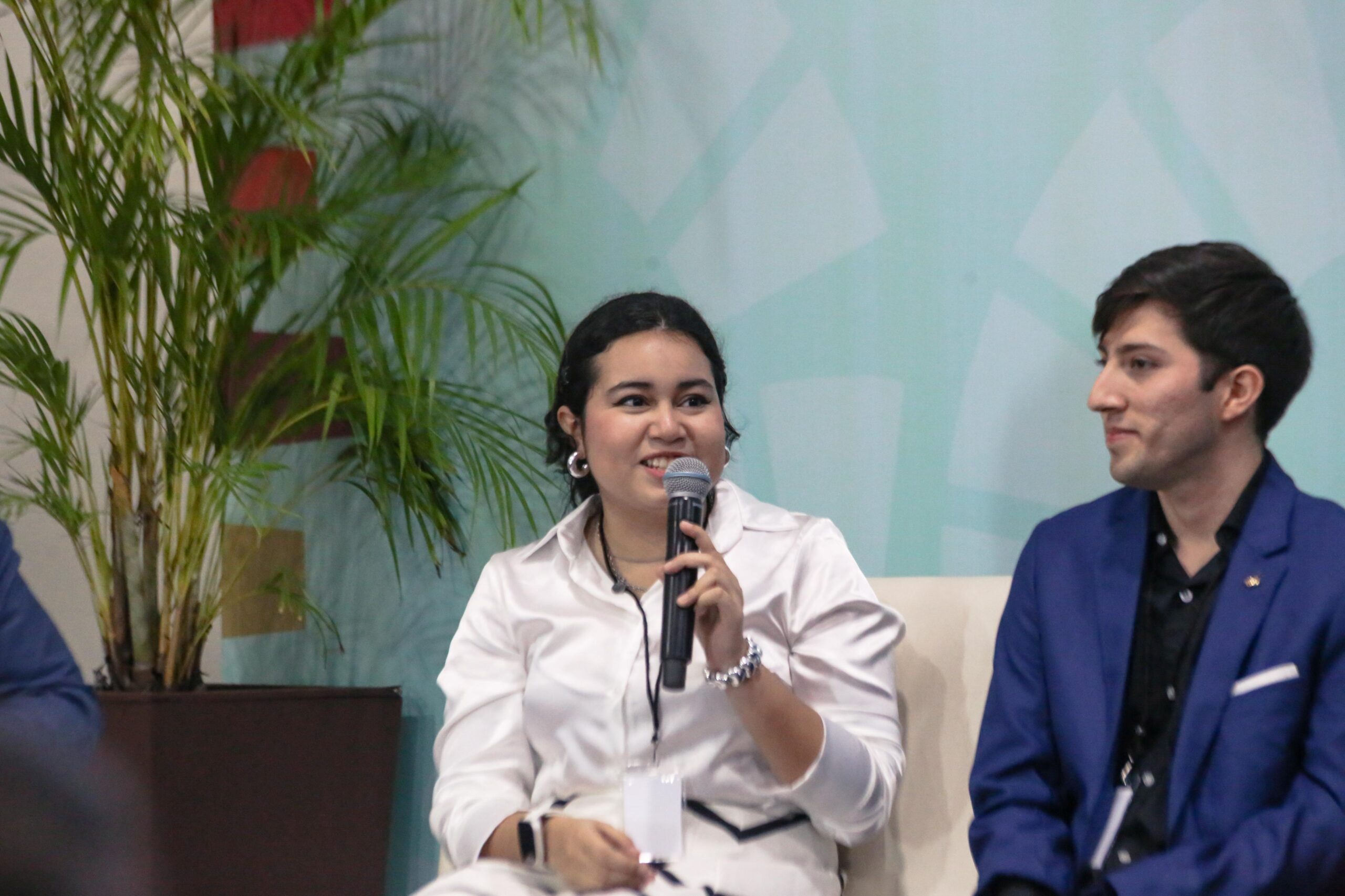By Lic. María José Gómez Meingüer
Ambassador of the State of Veracruz by Ignacio de la Llave
in the Youth Network for the 2030 Agenda, Second Generation
After six consistent years of the new reality, which has led our society to digital innovation for training and development opportunities through local, national, and international institutions, young people have found themselves free from the advances in communication and the in-person mobility of activities of interest to them. Digital academic competitions, online calls for applications in various fields of study, and virtual language courses have been seen as accompaniments to the current student life. But what are their consequences?
The rising expectations for youth education are no longer limited to academic averages, the study of a single language, or extracurricular activities at the institution itself. Today, competition among the higher education community for professional opportunities has been driven by a comparison of opportunity and community, without considering the realities of communication and the concrete pursuit of training, and the gap between the economic and social opportunities of these youth.
The creation of digital spaces by every organization, school, institution, professional, and government entity has become dependent on social media for timely engagement and continued operation, without a strategy, management, or timeline appropriate for their concise reception by their points of interest, which accumulate incessantly and repeatedly.
This exhausting number of publications, announcements, and calls for participation, while in the interest of optimizing ICTs for educational use, ends up being counterproductive in its presentation and is considered visual noise.
It should be clarified that visual noise is not a negative concept; it is simply the result of the excess of information and images that arises from the need to communicate massively.
Today, the sheer number of channels makes it difficult to concisely search for opportunities with easy access, resulting in wasted budgets, materials, and trained personnel. Do we need to limit them? Not at all! Do we need to know if they're reliable? Of course!
Youth participation must be rewarded with accurate information that can be reflected in our decision-making and is flexible, without being dissipated to exclusive groups. Innovation must embrace technology.

As of 2022, the National Survey on the Availability and Use of Information Technologies in Households (ENDUTIH) estimated that 68.51% of households had internet access, and that 78.61% of the Mexican population aged 6 and older (93.1 million people) used the internet. The 25- to 34-year-old age group was the largest group of internet users.
Accessible education should not be a matter of word-of-mouth communication or found by chance. Just like institutional education, it requires quality and observance of participation in its purpose, which is to be fully accessible for use, consumption, and recognition. Bridging the digital divide should not exist without quality and guidance on the most essential element: knowledge.
And if we talk about clear objectives for education in relation to quality education and its goals, we cannot ignore the clear goals of the 2030 Agenda and its Sustainable Development Goals (SDGs).
Within SDG 4, the search for financing could not be clearer, as it goes hand in hand with essential measures such as free and compulsory education, increasing the number of teachers, improving basic school infrastructure, and digital transformation.
As solutions and in fulfillment of these goals, initiatives have begun to emerge in response to discrepancies with digital noise and as innovations in optimizing ICT tools as a means of dissemination.
One of the solutions I've presented is the use of social networks specifically created to serve as meeting points for specialized communities. This is done by bringing together disseminators in spaces that aren't overloaded with information, for the sole purpose of finding, supporting, and gathering free online academic and training opportunities. This eliminates the barriers of unequal opportunity for both the student and non-student population.
DIPLO+ was born from the limitations of the COVID-19 contingency on academic mobility in the legal field, and emerges in 2025 as a site that disseminates different academic communities - from science and technology, humanities, arts, architecture, business, law and health - and studies, in all fields of opportunity - from scholarships to webinars - that more than 150 legitimate spaces from the national study sector to international organizations offer throughout school years and throughout the year.
Access link and invitation: https://discord.gg/62a5mSQQNm
This initiative becomes a retroactive tool, since while it relies on the information it feeds to disseminate and offer to users, it can also be shared as a source of academic offerings for those just starting out, both free and digital.
Our preparation plan is beginning at the Port of Veracruz with the connection of various universities. But with our DIPLO+ Mexico planning, we aim to connect with various national and international spaces so that universities can foster community digital accessibility, eliminate inequalities in higher education opportunities, and offer innovative digital resources.
Certainly, as the right holders of the right to quality education, we must demand the best alternatives so that they reach the entire population in the fulfillment of the authorities' duties. But if, as active members of our community, we wait for third parties who reflect our determination to follow this path, we can expect to never see the results.
“Education builds trust. Trust builds hope. Hope builds peace.” (Confucius)






